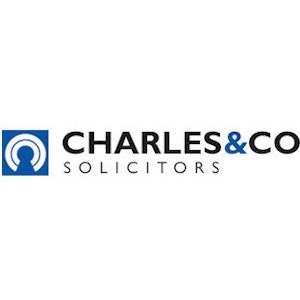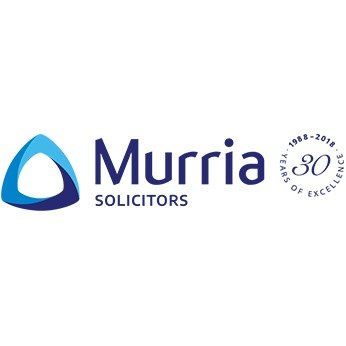Best Restructuring & Insolvency Lawyers in Birmingham
Share your needs with us, get contacted by law firms.
Free. Takes 2 min.
List of the best lawyers in Birmingham, United Kingdom
About Restructuring & Insolvency Law in Birmingham, United Kingdom
Restructuring and insolvency law in Birmingham, United Kingdom deals with the legal processes that occur when businesses or individuals are unable to meet their financial obligations. This field encompasses both preventative measures to avoid insolvency and formal proceedings once financial difficulty arises. Birmingham, as a major economic hub, sees significant activity in this area with both local businesses and individuals seeking expert guidance. Legislations such as the Insolvency Act 1986, Enterprise Act 2002, and relevant UK company laws provide the legal framework for resolving financial distress, whether through restructuring operations, entering administration, or winding up businesses.
Why You May Need a Lawyer
Legal expertise in restructuring and insolvency becomes crucial in various scenarios. Businesses may require a lawyer when facing cash flow problems, threats from creditors, or when planning voluntary arrangements to avoid insolvency. Directors and entrepreneurs often need specialist advice to comply with legal responsibilities and to mitigate personal risk, especially regarding wrongful trading and director disqualification. Individuals struggling with personal debts can also benefit from understanding the implications of bankruptcy or entering into an Individual Voluntary Arrangement (IVA). Creditors may seek legal help to recover debts, challenge insolvency proceedings, or safeguard their interests during asset distribution. Lawyers help navigate complex procedures, ensure compliance with statutory duties, and seek the best outcomes possible, whether through restructuring or formal insolvency processes.
Local Laws Overview
In Birmingham, as elsewhere in the United Kingdom, restructuring and insolvency matters are governed primarily by national legislation, including the Insolvency Act 1986, the Companies Act 2006, and the Enterprise Act 2002. Key elements include:
- Formal insolvency procedures, such as administration, liquidation (winding up), and receivership
- Restructuring tools, such as Company Voluntary Arrangements (CVA) and schemes of arrangement
- provisions for Individual Voluntary Arrangements (IVA) and bankruptcy for individuals
- Statutory roles and duties of insolvency practitioners
- Director liabilities and duties during insolvency, including wrongful trading provisions
- Special rules for priority of creditors and asset distribution
While the laws are national, Birmingham’s vibrant professional services sector means there is ready access to insolvency practitioners, courts experienced in commercial cases, and numerous specialists to handle complex matters.
Frequently Asked Questions
What is the difference between restructuring and insolvency?
Restructuring involves reorganising a business’s debts and operations to avoid insolvency and improve viability. Insolvency occurs when an individual or company cannot pay debts as they fall due. Restructuring can be informal or formal, while insolvency triggers statutory procedures.
What are the main types of insolvency procedures for companies in Birmingham?
The primary procedures are administration, liquidation (which can be compulsory or voluntary), and Company Voluntary Arrangements (CVA). Each process has different implications for management control, creditor claims, and business survival.
What options are available for individual insolvency?
Individuals can apply for bankruptcy, enter into an Individual Voluntary Arrangement (IVA), or seek a Debt Relief Order (DRO) under certain conditions. Each option has consequences for credit status and asset handling.
Can directors be held personally liable for company debts?
Directors are generally protected by limited liability, but can be personally liable for wrongful trading, fraudulent trading, or certain breaches of duty, especially if insolvency proceedings show misconduct or negligence.
What are the signs that a business may be at risk of insolvency?
Common signs include persistent cash flow shortages, defaulting on payments, receiving statutory demands or winding-up petitions, and falling behind on taxes or employee wages.
Are there alternatives to formal insolvency proceedings?
Yes, alternatives include informal arrangements with creditors, refinancing, negotiating time-to-pay arrangements with HMRC, or business restructuring through CVAs or schemes of arrangement.
How is creditor priority determined in insolvency?
The law sets out priority rules, generally paying secured creditors first, followed by preferential creditors (such as employees), unsecured creditors, and finally shareholders. Some assets may be subject to specific mortgages or charges.
How long does an insolvency process usually take?
The duration depends on the type and complexity of the procedure. Liquidations can take several months to years, while administrations and CVAs vary widely. Individual procedures like bankruptcy typically last 12 months but may be extended.
Do insolvency proceedings become public?
Yes, most court insolvency proceedings and decisions are public record. Notices are often published in The Gazette or made available through Companies House and the Insolvency Service.
How much does it typically cost to engage an insolvency lawyer in Birmingham?
Costs vary depending on complexity and the stage at which legal help is sought. Some matters can be handled for a fixed fee, while others are billed hourly. Many lawyers offer initial consultations to discuss your options and potential fees.
Additional Resources
If you are seeking advice or information about restructuring and insolvency in Birmingham, the following resources may be useful:
- The Insolvency Service - governmental body overseeing insolvency matters
- Birmingham Civil Justice Centre - for insolvency court cases and proceedings
- Citizens Advice Birmingham - offers free guidance on insolvency and debt
- Institute of Chartered Accountants in England and Wales (ICAEW) - directory of licensed insolvency practitioners
- Turnaround Management Association UK - professional body related to corporate restructuring
- Law Society of England and Wales - find local accredited lawyers specialising in insolvency
Next Steps
If you are facing financial distress, require guidance on managing debt, or have received formal insolvency notices, it is vital to act quickly. Begin by gathering all relevant financial documents and making a list of creditors, debts, and assets. Arrange a confidential initial consultation with a lawyer or licensed insolvency practitioner in Birmingham. Ask about the range of options available, the most suitable course of action for your circumstances, potential consequences, and likely costs. Early legal advice can help protect your interests, allow more choices, and increase the likelihood of a favourable outcome. Do not delay seeking help, as legal deadlines and creditor actions can significantly affect your rights and available remedies.
Lawzana helps you find the best lawyers and law firms in Birmingham through a curated and pre-screened list of qualified legal professionals. Our platform offers rankings and detailed profiles of attorneys and law firms, allowing you to compare based on practice areas, including Restructuring & Insolvency, experience, and client feedback.
Each profile includes a description of the firm's areas of practice, client reviews, team members and partners, year of establishment, spoken languages, office locations, contact information, social media presence, and any published articles or resources. Most firms on our platform speak English and are experienced in both local and international legal matters.
Get a quote from top-rated law firms in Birmingham, United Kingdom — quickly, securely, and without unnecessary hassle.
Disclaimer:
The information provided on this page is for general informational purposes only and does not constitute legal advice. While we strive to ensure the accuracy and relevance of the content, legal information may change over time, and interpretations of the law can vary. You should always consult with a qualified legal professional for advice specific to your situation.
We disclaim all liability for actions taken or not taken based on the content of this page. If you believe any information is incorrect or outdated, please contact us, and we will review and update it where appropriate.














